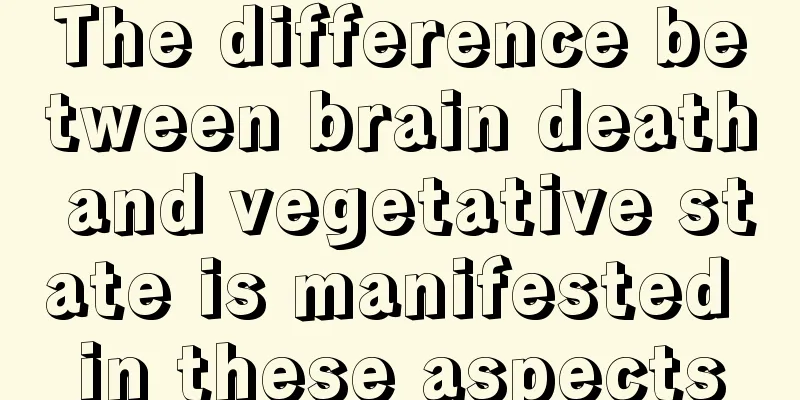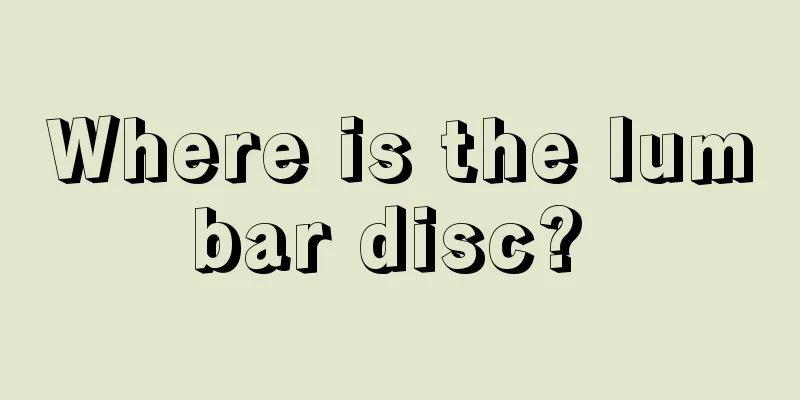The difference between brain death and vegetative state is manifested in these aspects

|
Brain death and vegetative state are two completely different diseases. The brain of a vegetative person has basically lost its original functions and only has a heartbeat. If he wants to continue his life, he must be cared for by others. If he is brain dead, he can no longer breathe independently, and his brain functions have been permanently lost, and he will eventually die. 1. What is a vegetative state? A vegetative state refers to a person whose brain has completely or mostly lost its functions, that is, a person who has lost consciousness but is still alive. Although a vegetative state still has a heartbeat and usually still has reflex movements (that is, its brain stem is still alive and can function), the continuation of a vegetative state usually requires the care of others, and actions such as eating can only be completed with the assistance of others. Medically, there are cases where people who were diagnosed as a vegetative state have woken up again, but it is not common, and usually only patients who are in a "minimal conscious state" and still have some consciousness and some brain function can wake up. Strictly speaking, people in a minimally conscious state are different from true vegetative states. They still have some observable, conscious behavior and are not completely unconscious. What is brain death? Patients who have a heartbeat but no spontaneous breathing and whose brain function has been permanently lost, eventually dying, are said to be brain dead. It refers to an irreversible state of loss of function of the entire brain, including the brainstem. Brain death is different from a vegetative state. In a vegetative state, the brainstem function is still there, and the coma is only caused by severe damage to the cerebral cortex or a sudden inhibition state. The patient can have spontaneous breathing, heartbeat and brainstem response, while brain death has no spontaneous breathing and is permanent and irreversible. 3. What is the difference between brain death and vegetative state? Simply put, brain death is more serious than a persistent vegetative state. Brain death is equivalent to death, while a vegetative state is considered to be alive. 1. Similarities There is death of nerve cells in the brain. Loss of consciousness. A lot of medical insurance is needed. 2. Differences Brain death usually refers to an irreversible state of loss of function of the entire brain, including the brainstem. Due to the loss of brainstem function, a person's most basic functions/reflexes will also be lost, and the main clinical manifestations are. Spontaneous breathing stops. Irreversible deep coma. There is no voluntary muscle movement, but spinal reflexes may still exist. Brainstem nerve reflexes (cranial reflexes) disappear. The pupils may be dilated or fixed and may not respond to light levels. The brain waves disappeared and became a flat line. Blood circulation to the brain stops completely. |
<<: Acute pleurisy is caused by these reasons
>>: Is viral herpes contagious? What are the routes of transmission
Recommend
What are the benefits of eating carrots for women
Carrots are considered a top-quality vegetable in...
How long can you live with endometrial cancer
How long can you live with endometrial cancer? In...
Anti-inflammatory and swelling points
When inflammation occurs in a certain part of the...
Black vertical stripes on nails
The health status of the human body can be seen f...
Is it okay to drink ice water when you wake up in the morning?
There is a saying circulating on the Internet tha...
What to do if you want your hair to grow faster
Many people now suffer from hair loss, and their ...
Current status of diagnosis and treatment of thyroid cancer
Many patients feel very desperate when they hear ...
What exercises can I do one year after kidney cancer surgery
The most important thing after suffering from a d...
Can hippocampus increase height
For some friends who love height, you all want to...
Which one has higher calories, cold noodles or rice
In the summer, because the weather is too hot, ma...
What factors are related to the life expectancy of bone cancer
What factors affect the life expectancy of bone c...
How to treat purple lips
In life, many friends will find that their lips a...
Are prolactinomas serious?
Prolactinoma is certainly a serious problem becau...
What are the symptoms of nasal mucosal erosion
Nasal mucosal erosion is more due to the accumula...
How much does it cost to treat osteosarcoma
The incidence of osteosarcoma is getting higher a...









